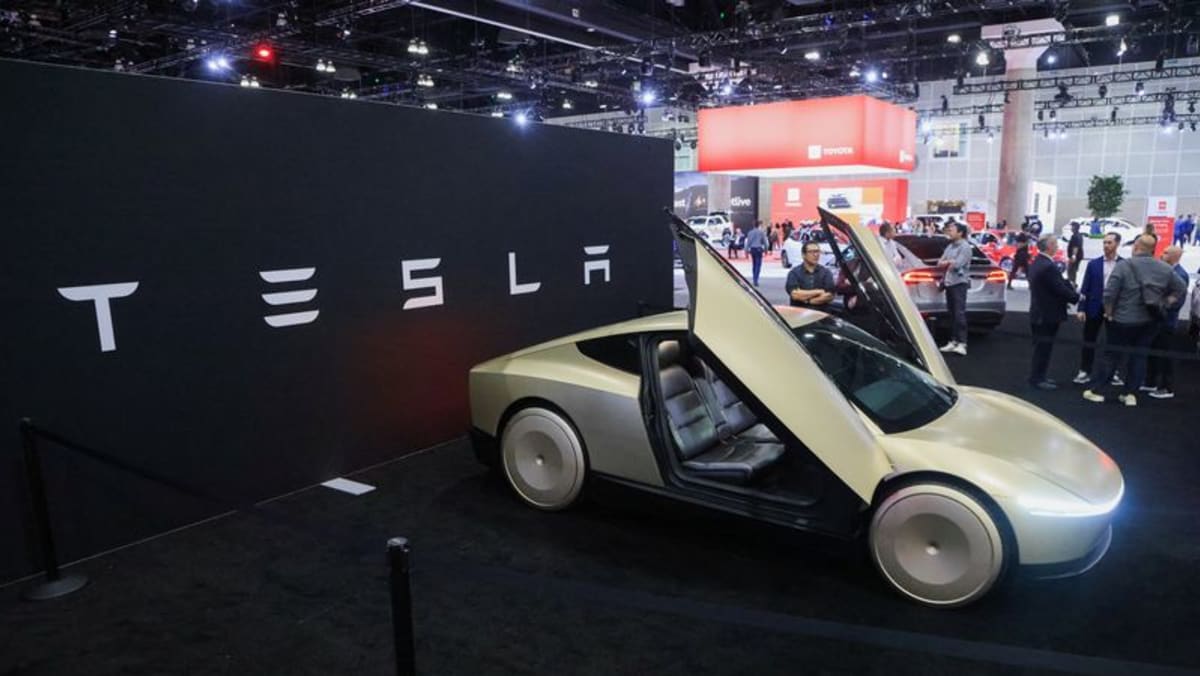SEOUL :Tesla CEO Elon Musk said the U.S. automaker had signed a $16.5 billion deal to source chips from Samsung Electronics, a move expected to bolster the South Korean tech giant’s loss-making contract manufacturing business.
Samsung shares soared nearly 7 per cent after news of the deal on Monday which comes as the world’s top memory chip maker faces mounting pressure in the race to produce artificial intelligence chips, where it trails rivals such as TSMC and SK Hynix.
Musk said Samsung’s new chip factory in Taylor, Texas will make Tesla’s next-generation AI6 chip, potentially re-energizing the project that has faced long delays amid Samsung’s difficulties in retaining and attracting major clients.
“Samsung agreed to allow Tesla to assist in maximizing manufacturing efficiency. This is a critical point, as I will walk the line personally to accelerate the pace of progress. And the fab is conveniently located not far from my house,” Musk said in a post on X on Monday.
“The $16.5B number is just the bare minimum. Actual output is likely to be several times higher,” he said in another post.
Shares of Samsung jumped 6.8 per cent to their highest since September last year, while Tesla shares were up 1.9 per cent in U.S. pre-market trading.
According to a senior analyst at NH Investment & Securities, Ryu Young-ho, Samsung’s Taylor fab “so far had virtually no customers, so this order is quite meaningful,” although the deal may represent a small portion of its logic chip revenue annually.
In October, Reuters reported that Samsung had postponed taking deliveries of ASML chipmaking equipment for its Texas factory as it had not yet won any major customers for the project. It has already delayed the plant’s operational start to 2026.
It is not clear whether the Samsung-Tesla deal is related to ongoing trade talks between South Korea and the United States. Seoul is seeking U.S. partnerships in chips and shipbuilding amid last-ditch efforts to reach a trade deal to eliminate or reduce potential 25 per cent U.S. tariffs.
A South Korean trade ministry official told Reuters he had not heard that the specific deal was part of the trade negotiations.
POTENTIAL PRODUCTION TIMELINE
While no timeline was provided for AI6 chip production, Musk has previously said that next-generation AI5 chips will be produced at the end of 2026, suggesting AI6 would follow.
Lee Dong-ju, an analyst at SK Securities, expects production in 2027 or 2028, but Tesla has a history of missing its targets.
Samsung currently makes Tesla’s AI4 chips, which power its Full Self-Driving driver assistant system, while TSMC is slated to make the AI5, initially in Taiwan and then Arizona, Musk has said.
Samsung, the world’s top memory chip maker, also produces logic chips designed by customers through its foundry business. The Texas project is central to Samsung Chairman Jay Y. Lee’s strategy to expand beyond its bread-and-butter memory chips into contract chip manufacturing.
It holds just 8 per cent of the global foundry market, far behind industry leader TSMC, which has a 67 per cent share, data from market researcher Trendforce show.
Samsung had earlier announced the $16.5 billion chip supply deal without naming the client, saying the customer had requested confidentiality about the details of the deal, which will run through the end of 2033.
Three sources briefed about the matter told Reuters that Tesla was the customer for the deal.
HELP SAMSUNG’S FOUNDRY BUSINESS
The deal with Tesla comes as Samsung, which is due to report its earnings on Thursday, faces mounting pressure in the race to produce artificial intelligence chips, where it trails rivals such as TSMC and SK Hynix. This lag has weighed heavily on its profit and share price.
Earlier this month, Samsung projected a 56 per cent drop in second-quarter operating profit, partly due to widening losses of its foundry business.
Pak Yuak, an analyst at Kiwoom Securities, said the deal would help reduce losses at Samsung’s foundry business, which he estimates exceeded 5 trillion won ($3.6 billion) in the first half of the year.
Analysts say Samsung has struggled to retain key clients, with many defecting to TSMC for advanced chips, underscoring technological challenges the firm faces in the race to stay relevant in the capital-intensive business.
TSMC counts Apple, Nvidia and Qualcomm among its customers.
($1 = 1,378.7000 won)
